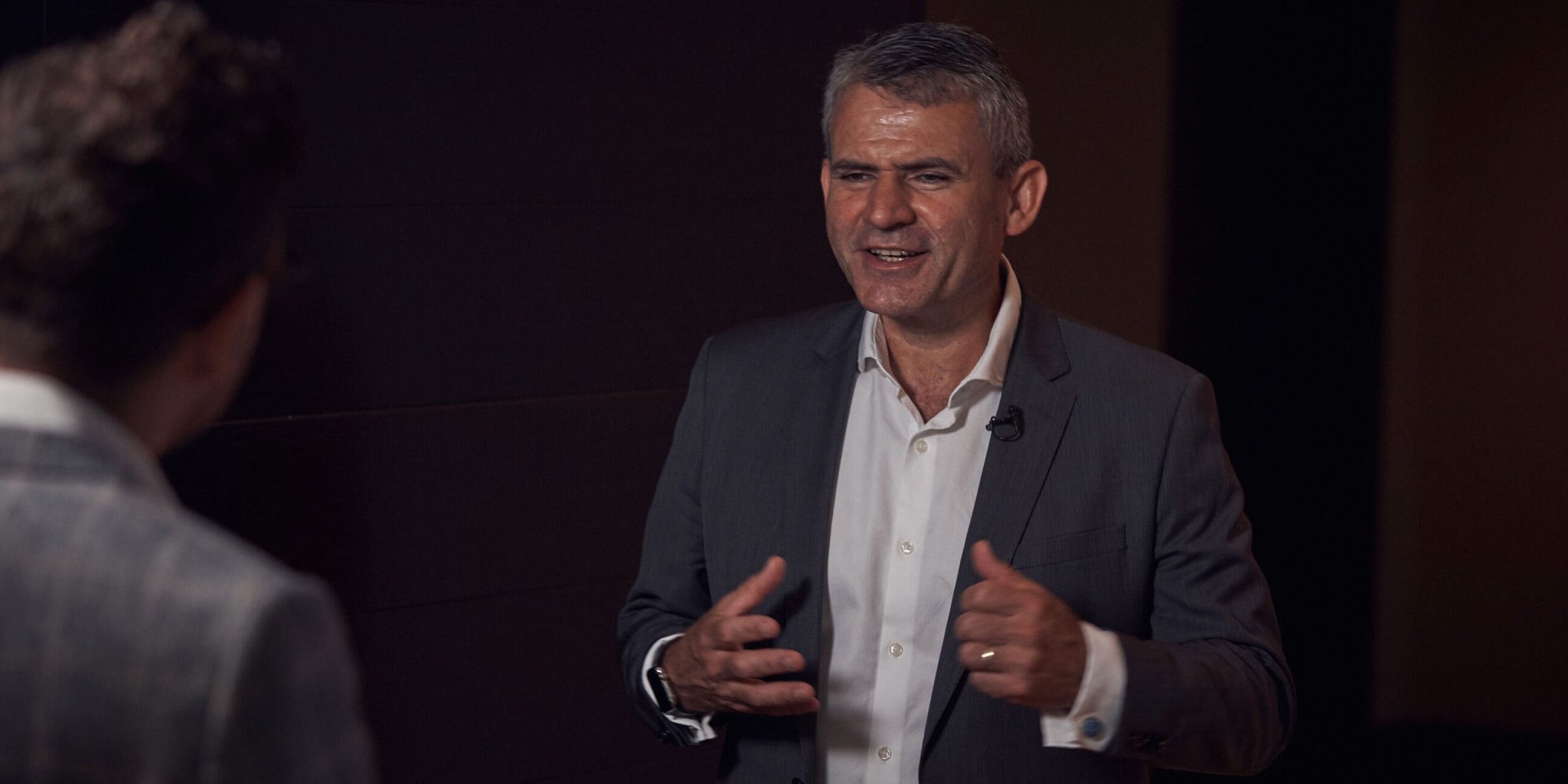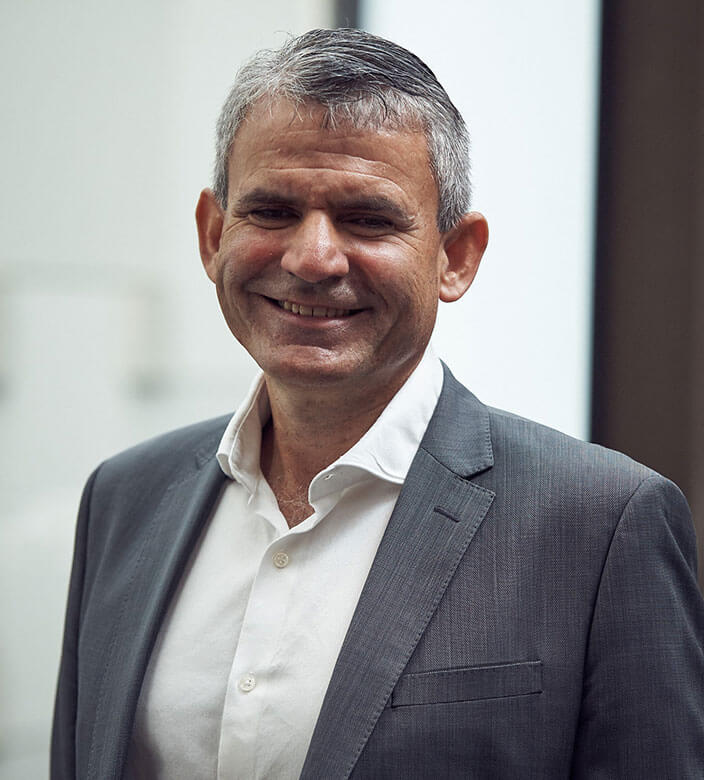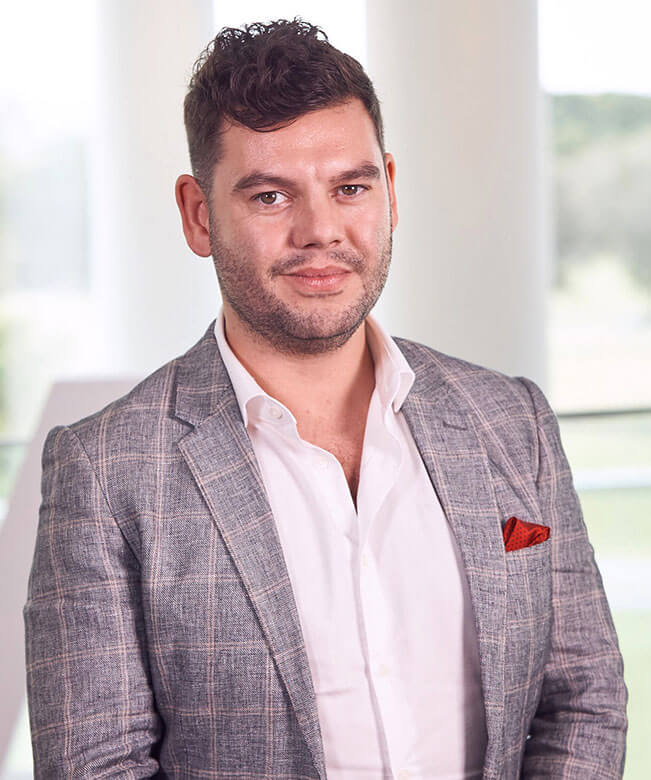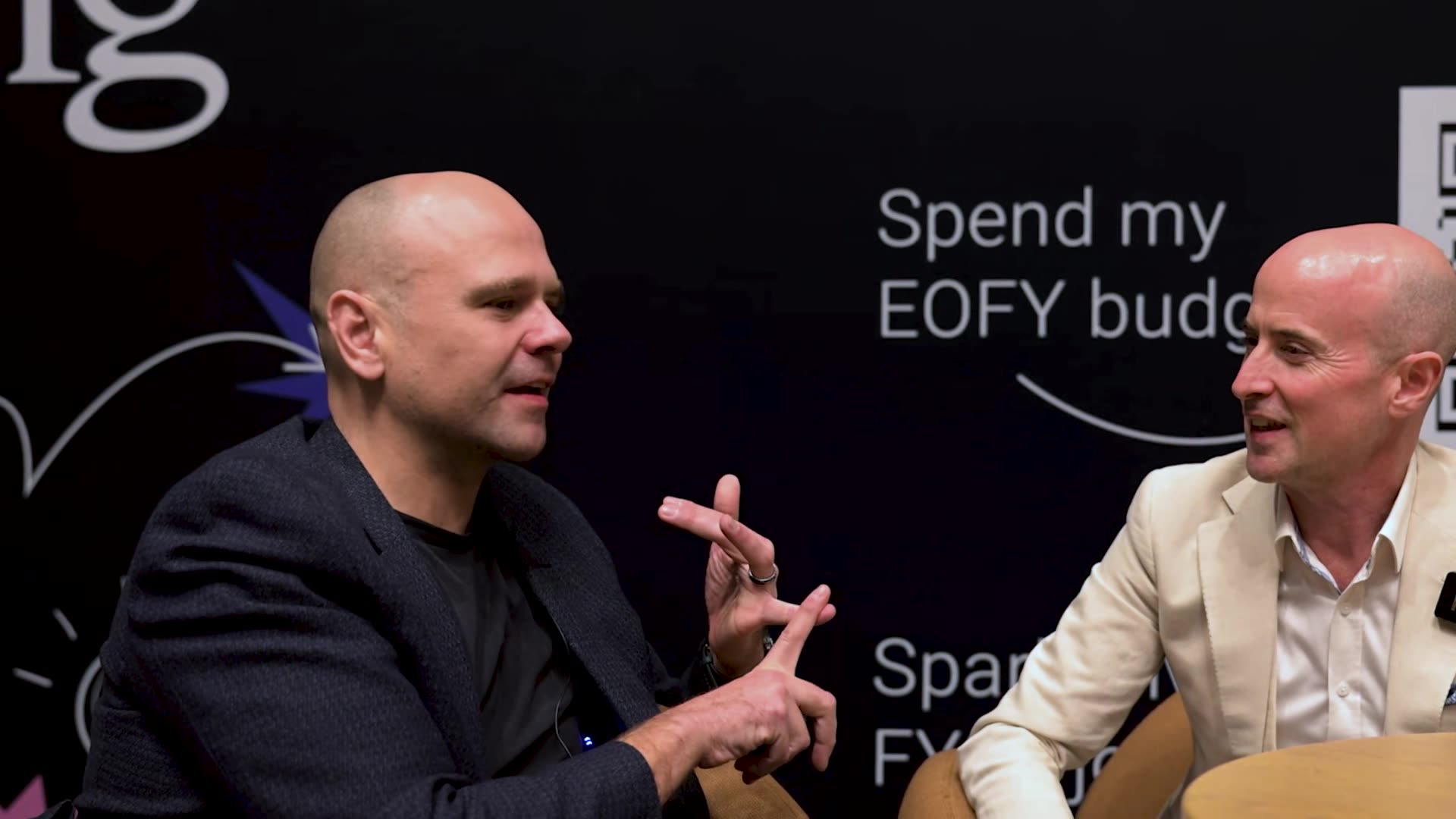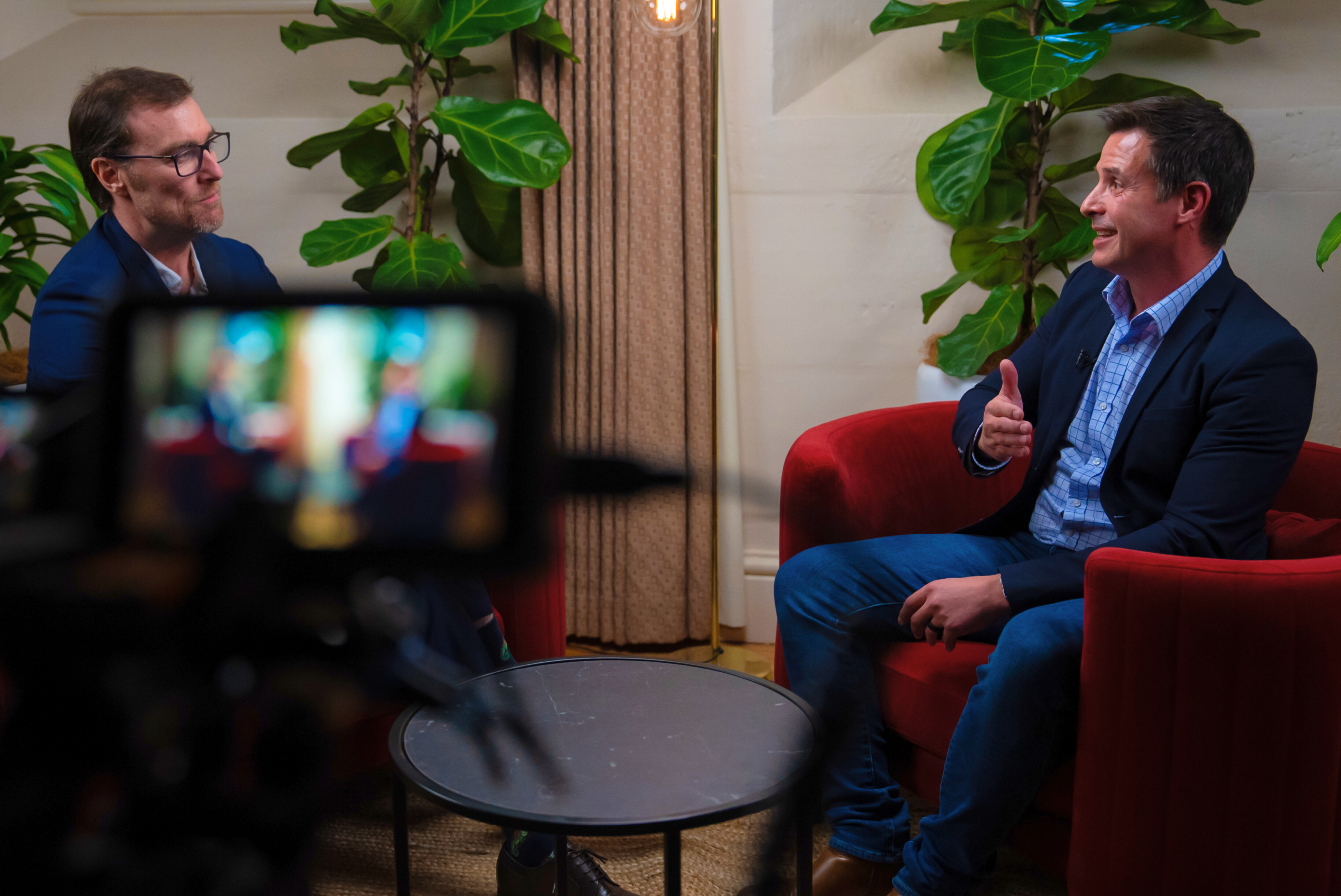Gerard Florian on Scaling Agile
Gerard Florian discusses IT ‘as a service’ as well as the role government and industry play in Tech awareness.Gerard Florian has been Group Executive Technology at ANZ since January 2017. He is responsible for defining ANZ’s technology strategy and building and managing ANZ’s technology infrastructure. This includes overseeing the development of new technologies, implementing existing technologies to help the bank reach its strategic goals and creating systems and processes to make the best use of ANZ’s resources.
Florian has worked in technology for more than 30 years. He was previously Chief Strategy Officer for the Global Cloud Business Unit at Dimension Data where he was instrumental in the establishment of a portfolio of cloud enabled managed services operating on a global platform. Prior to that, he was Chief Technology Officer and Chief Marketing Officer for Dimension Data’s Australian division. He has also been a member of ANZ’s Technology and Digital Business Advisory Panel since it was established in 2015.
Speaking at ADAPT’s CIO Edge conference, Matthew Hanley and Gerard Florian discusses scaling agile, IT ‘as a service’ and the role government and industry play in Tech awareness.
Matthew Hanley, Partner at ADAPT:
Gerard, thank you for joining us today at CIO Edge, and thank you for your keynote presentation. Now, for the people who missed it, can you give us a quick breakdown of what was discussed today?
Gerard Florian, Group Executive at ANZ:
So today at CIO Edge, I have spent some time talking about customer experience and how we will win through customer experience by really trying to hone in on some of the cultural and behavioral changes, as well as some of the technology. So we talk about things like moving to a new way of working, using tools like agile, and human-centred design, and lean, but also thinking about simplifying our architecture, and also embracing that idea of IT as a service, rather than building IT projects and then leaving them for somebody else to run.
Matthew Hanley:
Nice, Gerard, so to dig a bit deeper there, many tech leaders that I speak to at large enterprise, they look at ANZ Bank as the canary in the coal mine, especially when it comes to agile, new ways of working. Everybody’s watching to see what happens. Agile at this scale will never be easy, so how is it done? Is it department by department? Is it all at once? What are the successes and the challenges in rolling out an agile program like this?
Gerard Florian:
When we think about rolling out this new way of working within ANZ, we firstly recognise that it is a cultural change, and any of those things take time. We’re also quite committed to trying to make a fairly large change initially, rather than trying to do little pieces, because we felt that the very nature of what we’re doing meant that we needed the whole of the technology organisation, not just part of it, to be part of this change.
We went further than that, and we included part of our business. Not all of our business, but a part of the Australian division bank that are responsible for building our products, whether they’re home loans, credit cards, deposit products, they’re also part of this change. We’ve been rolling it out across that group, roughly 10,000 people over the last year. We still recognise that we’ve got a long way to go in that process, given the nature of the transformation we’re talking about.
Matthew Hanley:
Okay, so to stay on a theme of speed and agility, you’ve previously mentioned the idea of using some sort of flexible infrastructure to deliver different services to customers, and that IT teams within any company or organisation will need to be thinking more around services, or as a service mindset. So how much of a reality is this within ANZ Bank? How does the team become seen culturally as a service?
Gerard Florian:
The idea of ‘as a service’ changes what we think at a few different levels. First and foremost, we need to be think about getting something into market, whether that’s for our staff, or it’s to our customers quickly. Now, we don’t have three or four years to go and build the perfect thing and get it all right, so the idea of a minimum viable product getting into the hands of our customers is one mindset shift.
Then, there’s that closed feedback loop, talking to your staff or external customer again. Talking to them and learning from them, seeing how they’re using the product to make it better, and being obsessive about consumption and adoption. It’s not just about the project going live and moving to something else. It really is about embedding that, and making it part of either the staff or the customer’s everyday activity.
Matthew Hanley:
Nice. So, Gerard, your appointment from Dimension Data together with the appointment of Maile Carnegie from Google last year, highlights the critical importance of technology to transform ANZ Bank to compete more effectively in the digital age. Years ago, it was a traditional tenure for a CIO within banking to stay within banking, and right now I feel ANZ have made some massive plays into getting top executives from tech companies and exploring more into non-traditional industries to get a more diverse range of knowledge together. How important is that type of thinking to the bank?
Gerard Florian:
In any organisation, whether you’re in financial services or not, diversity is a fairly important tenet to hold on to. Often people will go to gender diversity, cultural diversity. Cognitive diversity sees people from different industries come together, so we’re talking about people from the tech industry, in my case, coming to work at a bank. Some are coming from consulting, coming from a range of different areas, but then also making sure that you’ve got the blend, the gender balance there as well. This means that the group who are effectively sitting at the leadership table are solving problems together, but bringing a wealth of experience to that table to help make the best possible decisions we can for ANZ.
Matthew Hanley:
Okay, so recruit, retain, and grow is a mantra within many tech teams, but how do Australian, homegrown organisations compete with attracting tech talent, especially against the big Amazons of the world and the sexy tech companies who are now on the scene?
Gerard Florian:
When it comes to attracting talent, particularly at an 180 year old bank, this is a real challenge for us. When we think about our brand and our reputation out there, it’s something that we have had to work on. The reality is that a lot of uni students who are thinking about places to go are thinking about tech companies and perhaps thinking about some of the consulting firms. But as we start to tell people more about the interesting technologies that we’re working with, the changes, the tools that they’ll get to work with, what we’re finding is that more and more people see that an organisation like ANZ represents the right level of infrastructure and scale and size to able to grow my career and at the same time some really really exciting opportunities. We know we’re in a war for talent, and our job is to get out there and tell the story of what we’re doing at ANZ and why it’s a great place to work.
Matthew Hanley:
Great point. So, what do you see as the most significant challenges that CIOs are going to face over the next five years?
Gerard Florian:
When it comes to that question of change and we’ve gone through various eras of change. Yes, it’s happening at a slightly faster rate at the moment, but it will be with us always. The first challenge is accepting the fact that change is constant. I think the two big areas that many CIOs are looking at today, whether you’re in financial services or retail or telco doesn’t matter, is fundamentally, what role can we play in helping to transform business operations?
And we have to be able to enlarge organisations, change the business architecture to be be able to be a much more adaptive organisation. So number one is about business operations and the second piece is thinking very clearly about revenue growth. Every industry is being disrupted and while it’s important that we manage costs, ultimately we’ve also got to think about our revenue and what are those sources of revenue and how can we look for new opportunities for our business and the role that technology can play to support that.
Matthew Hanley:
Gerard, I was talking to David Gledhill the CIO of DBS Bank recently, and we were talking about the need to always further educate. So how important is technology education to you and your team? And how do you install that learning and development and growth mantra within the business?
Gerard Florian:
When it comes to learning within an organisation, firstly one of the things that our CIO Shane Elliot has been really promoting as part of our change is this adoption of a growth mindset, authors like Carol Dweck have been particularly popular, not just with Shane but people like Satya Nadella and others. So that growth mindset says we are always learning, we are looking, we’re constantly curious. We’re trying to also learn through doing, yes we will fail along the way, but through that we get better.
For me personally, one of my favorite sayings is simply ‘stay in school’. It was taught to me by a mentor a long time ago. It’s pretty fundamental that we constantly learn. In my career you just don’t stop. The sources are there, there’s more opportunities to learn than ever now, from other organisations, through to tools like podcasts such as this, they’re all there and we need to avail ourselves of them.
Matthew Hanley:
Yes, I agree. So how do we raise tech awareness and what impact does government and industry have on learning and technology moving forward within Australia?
Gerard Florian:
When we think about the evolving tech community in Australia, we do have a bit of a challenge. That challenge is how do we continue to attract more and more people into the industry and we usually go to grads as a first place, but it’s not just about grads. I think the TAFE system has a role to play, I think there’s opportunities for women returning to work. So at ANZ one of the things that we really are looking at, is this whole idea of attracting and retaining talent and the ask for me would be how do we work with other industry organisations?
It’s not just a government problem, to collectively think work closely with the universities as well and the TAFE system and the tech vendors to try and create an environment where more and more Australians want to be part of this emerging industry and see it as a real opportunity for a future career. It’s not all about developers, just lot of focus on STEM and other areas, there’s many exciting jobs in our industry and we just need more and more people in Australia wanting to be part of that.
Matthew Hanley:
Great answer Gerard. So to help this, what role does the government need to play to really bring serious technology players to the big hubs like Sydney and Melbourne?
Gerard Florian:
So when we think about the role that the government can play, clearly part of that is at a business level how do we think about things like technology parks, how do we think about taxation systems and everything else. They’re all very important. For me it does though come down to something more fundamental about looking at children today and what people think in high school. It’s about the stories that they’re hearing and the things that they’re thinking about and actually understanding this industry. Whether you’re working at a cool tech company and an amazing place like Atlassian or you’re working at a cool bank, who’s using tech like ANZ, it is a wonderful industry to be in and it’s full of opportunity, and we simply need more people to understand what that potential is and come and join us.
As Group Executive responsible for technology strategy and operations at ANZ, Florian shared practical advice to technology leaders on leading blended teams of technologists at CIO Edge in February.



















